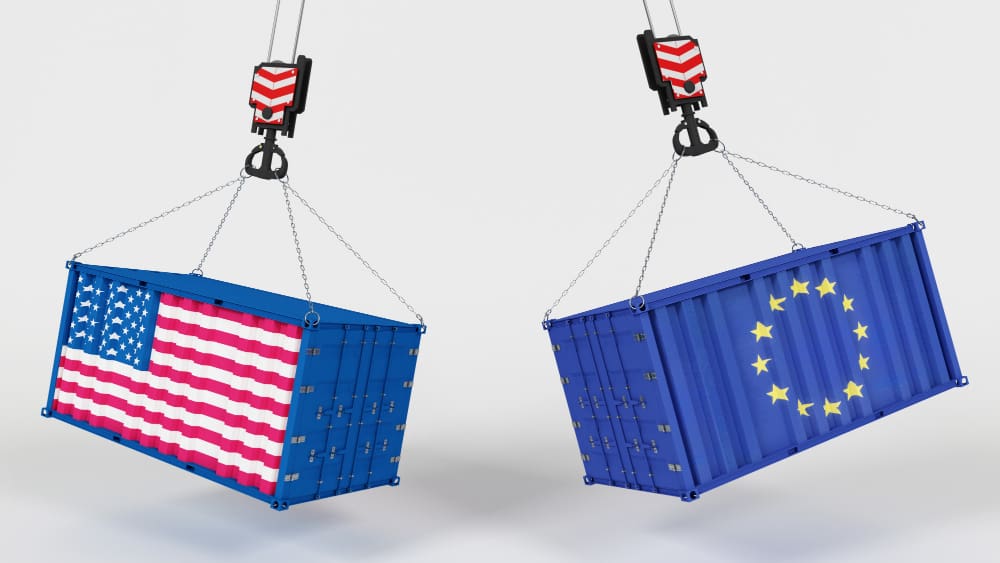Donald Trump has expressed absolute confidence in the potential for a trade agreement between the United States and the European Union, two of the world’s most significant economic powers. During a meeting with Italian Prime Minister Giorgia Meloni, Trump asserted that a trade deal is inevitable and emphasized the importance of it being fair. The urgency for an agreement is driven by different motivations on each side. For the European Union, it is a means to avoid the impact of a 20% tariff announced by Trump earlier this month, which has since been temporarily suspended. For the United States, it offers a chance to stabilize markets, reassure investors, and achieve a public relations success.
The White House has positioned the 90-day suspension as a critical period for negotiations, inviting countries to engage with the U.S. to find a compromise. However, it remains unclear whether this compromise will be mutually or unilaterally beneficial. Meloni’s visit, the first by a European leader since the announcement of the “reciprocal tariffs,” signifies the ongoing diplomatic efforts. Trump had also recently met with a Japanese trade delegation, indicating the high priority placed on international trade relations.
Meloni, leveraging her political stance to bridge the Atlantic divide, expressed optimism about the possibility of a deal and extended an invitation to Trump for an official visit to Italy. However, she clarified that she could not negotiate on behalf of the European Union. As part of a customs union and single market comprising 27 member states, Italy is bound by collective trade policies managed by the European Commission, led by Ursula von der Leyen. Despite the need for direct negotiation with the Commission, Trump has not engaged with von der Leyen since his return to the White House.
Trump’s skepticism towards the European Union is well-documented, often criticizing it as a monopolistic entity that disadvantages the U.S. He maintains a favorable view of European countries individually but opposes the EU’s political and economic integration. In contrast, EU officials highlight a more balanced economic relationship, with a goods surplus offset by a services deficit with the U.S., challenging the narrative used to justify tariffs.
Despite the significant economic stakes, progress towards averting a potential trade conflict has been minimal. The lack of communication between Trump and von der Leyen exacerbates concerns, as efforts to arrange meetings have been unsuccessful. Transatlantic tensions have risen, particularly following Trump’s controversial comments on various geopolitical issues.
While von der Leyen remains committed to the transatlantic relationship, her tone has hardened publicly. The absence of high-level dialogue leaves sensitive trade matters to deputies without the authority to make decisive agreements. Maroš Šefčovič, the European Commissioner for Trade, has been actively engaging with U.S. counterparts, discussing a possible “zero-for-zero” tariff deal on industrial goods, which Trump previously rejected.
Negotiations continue at a technical level to explore mutually beneficial agreements, but the prospect of a resolution remains distant. Concerns persist that the U.S. may not adhere to the 90-day negotiation window, and the potential for new tariffs on the pharmaceutical sector looms large.
The European Commission fears the U.S. aims to dismantle digital regulations established in previous mandates, impacting major tech companies. Disagreements over trade and digital regulations are significant, with the possibility of provisional deals failing due to sudden policy shifts from the Trump administration.
Even if von der Leyen secures direct communication with Trump, his unpredictable nature poses challenges for negotiations. During Meloni’s visit, Trump tempered his earlier certainty about a trade deal, emphasizing ongoing discussions with various countries without specifically mentioning the European Commission. He defended his tariff policies, asserting their economic benefits.








